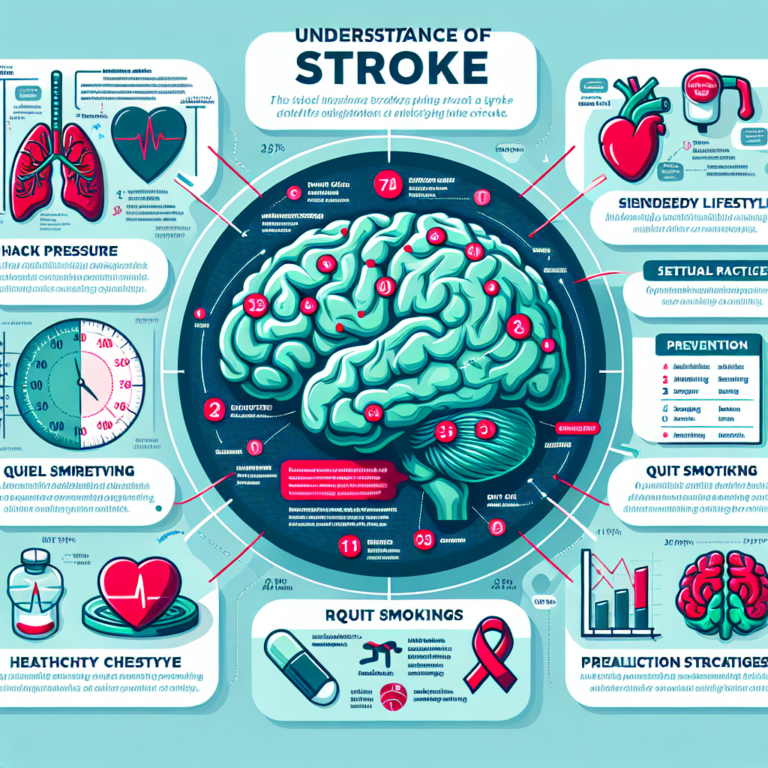
Introduction
Imagine you’re a patient diagnosed with a chronic illness that requires daily medication. The doctor explains the treatment plan, emphasizing its importance for your health. But days turn into weeks, and the once-clear instructions start to blur. You miss doses, forget appointments, or even doubt the effectiveness of the medication. Why does this happen? As simple as it may seem, medication adherence—essentially, following prescribed medical advice—can be complex, influenced by various psychological factors. In this article, "Understanding Compliance: The Psychological Factors Affecting Medical Adherence," we’ll explore these intricate components, delve into real-world examples, and highlight strategies that can boost compliance effectively.
The Importance of Medical Adherence
Before exploring the psychological influences, it’s crucial to understand just how vital medical adherence is. According to the World Health Organization, medication adherence is a significant factor in effective healthcare; poor compliance leads to approximately 50% of treatment failures, resulting in worsened health outcomes and increased healthcare costs. This underscores the urgency to unpack the underlying psychological factors affecting medical adherence.
Psychological Factors Affecting Medical Adherence
Medical adherence is impacted by a plethora of psychological factors, including:
- Motivation
- Beliefs and Attitudes
- Cognitive Load
- Emotional State
- Social Support
- Cultural Influences
1. Motivation: The Driving Force
Motivation plays a crucial role in medical adherence. Patients often need an intrinsic drive to maintain their regimen. Negative motivations, like fear of worsening health, can compel adherence, while positive motivations, such as wanting to participate in family activities, can be equally powerful.
Case Study: The Heart Failure Patient
In a study published in the Journal of the American College of Cardiology, researchers tracked heart failure patients who exhibited varying levels of motivation. They found that those motivated by personal goals—such as attending family events—were more compliant to their medication. This instance underscores the significance of intrinsic motivation as a psychological factor affecting medical adherence.
2. Beliefs and Attitudes: The Cognitive Lens
Beliefs about medication, including its effectiveness and potential side effects, significantly impact adherence. The Health Belief Model suggests that individuals who perceive high susceptibility to illness or severe consequences are more likely to comply with treatment.
Case Study: Diabetes Management
A qualitative analysis involving diabetic patients revealed that those who held a strong belief in their medication’s effectiveness adhered better. When patients viewed their treatment as a partner in health, they were motivated to comply, emphasizing the psychological factor of beliefs in understanding compliance.
3. Cognitive Load: The Burden of Information
The more information patients have to assimilate about their condition, treatment options, and medication details, the greater the cognitive load. High cognitive load can lead to frustration and confusion, diminishing adherence.
Table: Cognitive Load and Adherence Rates
| Cognitive Load Level | Percentage of Non-Adherence |
|---|---|
| Low | 10% |
| Moderate | 30% |
| High | 60% |
In an experiment where patients were provided with simplified medication instructions versus extensive information, the former group showed significantly improved adherence rates. This demonstrates that managing cognitive load is vital for enhancing medical adherence.
4. Emotional State: The Heart’s Influence
Emotional wellbeing is intertwined with health. Depression, anxiety, and stress can severely impede adherence. A patient battling depression may not have the energy or inclination to follow a medication schedule.
Case Study: Depression and Cardiac Medication Compliance
Research published in Circulation: Heart Failure indicated that patients with heart failure experiencing symptoms of depression had a notably lower adherence rate. The study concluded that addressing patients’ emotional needs was essential for improving medical compliance.
5. Social Support: The Network Effect
Having a supportive network can drastically improve adherence. Patients embedded in a nurturing environment—whether familial, communal, or through healthcare providers—tend to demonstrate more robust compliance.
Case Study: Community Health Workers
A program deploying community health workers to support asthma patients showed a marked increase in adherence. The presence of someone cheering them on and offering practical strategies made a measurable difference. This highlights how social support is a crucial psychological factor in understanding compliance.
6. Cultural Influences: The Context of Treatment
Cultural background also shapes health beliefs and attitudes. Different cultural norms can significantly alter how patients perceive illness and treatment, eventually impacting adherence levels.
Case Study: Latino Communities and Medication
In a study examining Latino patients with hypertension, researchers found that cultural beliefs around traditional medicine were paramount. Those who respected both traditional and prescribed medication tended to adhere better. This emphasizes the need for culturally sensitive approaches when addressing medical compliance.
Strategies to Enhance Medical Adherence
Understanding compliance involves not just recognizing the psychological factors but also implementing strategies to enhance adherence through targeted interventions. Here are some actionable strategies:
1. Personalized Communication
Healthcare providers should communicate in a manner tailored to the individual patient, considering their beliefs, attitudes, and emotions. Surveys and ongoing dialogs can bridge gaps in understanding, ensuring the patient feels supported and informed.
2. Support and Involvement
Encouraging family or friends to be involved in a patient’s treatment regimen helps create a supportive environment. Social support networks can provide the motivation necessary for adherence.
3. Simplifying Regimens
Reducing the complexity of medication regimens can significantly alleviate cognitive load. For instance, using combination pills or adjusting the frequency of dosages can lead to better compliance.
4. Addressing Emotional Needs
Regular screenings for conditions like depression or anxiety should be part of the healthcare routine to ensure emotional well-being. Mental health support needs to be prioritized to increase medical adherence.
5. Cultural Competence
Healthcare providers must respect and understand patients’ cultural backgrounds. Culturally tailored educational materials can enhance understanding and acceptance of medical advice.
Conclusion
Understanding compliance: the psychological factors affecting medical adherence are intricate and multi-faceted. From motivation and beliefs to cognitive load and cultural influences, each element contributes uniquely to how patients engage with their healthcare. By prioritizing these psychological factors, we can foster a more effective treatment landscape that not only promotes adherence but also leads to better health outcomes.
Ultimately, empowering patients with knowledge, support, and understanding is vital for improving adherence rates. So, let us champion this cause and commit to making compliance a priority; the ripple effect will extend to healthier communities and improved well-being.
FAQs
1. What is medical adherence?
Medical adherence refers to how closely patients follow healthcare providers’ recommendations, including taking medications as prescribed and attending scheduled appointments.
2. How do psychological factors influence adherence?
Psychological factors such as motivation, beliefs about medication, emotional well-being, and social support significantly affect how willing patients are to adhere to their treatment plans.
3. Why is cultural competence important in healthcare?
Cultural competence ensures that healthcare providers recognize and respect patients’ cultural beliefs and practices, which can significantly influence their health behaviors and adherence.
4. What role does social support play in medication adherence?
Social support from friends, family, and peers can enhance adherence by providing encouragement and accountability, leading to improved health outcomes.
5. How can healthcare providers improve communication with patients?
Providers can enhance communication by personalizing discussions, considering patients’ beliefs and attitudes, and utilizing clear, concise information tailored to individual understanding levels.
This exploration of "Understanding Compliance: The Psychological Factors Affecting Medical Adherence" not only shines a light on the various intricate elements but also offers pathways to improve adherence rates, making a real difference in patients’ lives.















